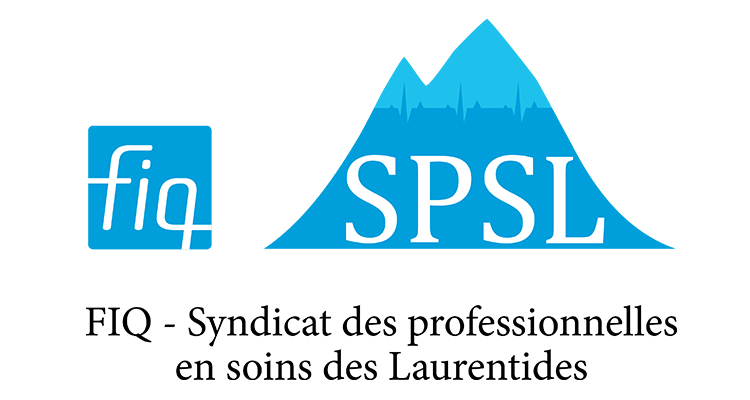
Healthcare professionals in the Laurentians knee-deep in mandatory overtime
The Syndicat des professionnelles en soins des Laurentides (FIQ – SPSL) is speaking up about the CISSS des Laurentides’ inefficient resource management. The difficult work conditions, staff shortage and ineffective job structure are too much for healthcare professionals in the Laurentians who are exhausted, drained and discouraged. Meetings with the employer to discuss the situation and find solutions were unsuccessful.
“Today, we are speaking on behalf of healthcare professionals in the Laurentians who have reached their quota. Our members have run out of steam from having had to do overtime on a daily basis. They want change and fast. They want to give the public the best care possible, but they can’t while working under their current conditions,” said FIQ–SPSL President Julie Daignault.
Overtime and mandatory overtime are an integral part of human resource management methods in the Laurentians. Since the beginning of the winter, nurses, licensed practical nurses and respiratory therapists have had to do a lot of overtime hours across the Laurentian territory.
“This is not an uncommon situation. Healthcare professionals are subject to excessive workloads and overtime every winter and throughout the year. Every day many healthcare professionals are forced to stay at work. The worst part of it is that, oftentimes, they know they will have to do mandatory overtime up to one week in advance,” said Peter Delli Colli, Vice-President, Centre sector, political officer for organization of work.
While the overtime hours increase in the Laurentians and the staff becomes increasingly exhausted, unfortunately, it’s the patients who pay the highest price. In the Laurentians’ emergency department, more and more dangerous situations are arising. Patients are sometimes left in unsafe spaces without supervision. Due to a lack of space and the outdated infrastructure of some emergency departments, patients will be left in beds in rooms without call bells or resuscitation equipment. It’s a dangerous situation for patients and staff.
In Argenteuil, St-Jérôme, Thérèse-de-Blainville, Lac des Deux Montagnes, Des Sommets, Antoine-Labelle ou Pays d’en Haut, etc., the number of overtime hours just keeps rising. For example, in the Argenteuil emergency department, 493 overtime hours were done in the span of four weeks. Healthcare professionals report unacceptable situations every day using the Safe Staffing Form. On January 15, some staff at the St-Jérôme emergency department even decided to hold a sit-in for almost three hours in protest.
“And yet, the employer was given solutions through the union’s local collective agreement, for one, which would attract and retain more staff by offering an adequate job structure, reducing job instability and promoting stable work teams. Moreover, the FIQ is proposing safe healthcare professional-to-patient ratios in order to give healthcare professionals back the opportunity to provide safe care to the Quebec public,” said Julie Daignault.